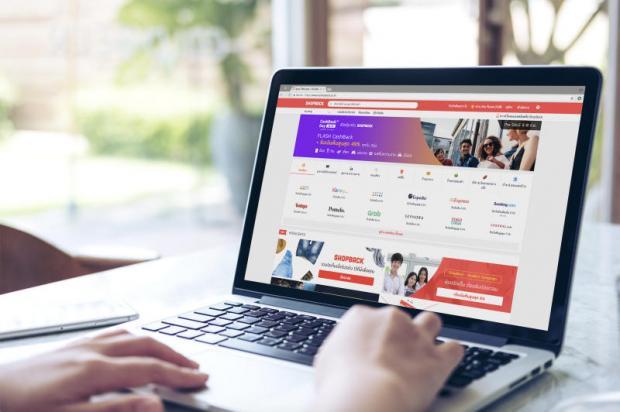Thailand: Cashback model spreads online
Earning back a percentage of money spent online is the new incentive in retail e-commerce as more players try to apply the cashback model.
At least four players — Shopback, mycashback.co, dealcha and Upcashback — are jumping onto the cashback bandwagon.
Citing research by TMB Bank, Napat Seubsai, managing director of myCashback.co, a local startup providing an online cashback platform, said online shopping is a part of everyday life for some consumers, bolstering retail e-commerce (business-to-consumer, or B2C) to reach 460 billion baht out of a total of 2 trillion baht in e-commerce this year.
Online B2C is a huge market, growing 19% in 2017 and expected to gain 22% next year, said Mr Napat.
The site myCashback.co is a branded affiliate marketing to shoppers buying at any merchant partners, offering a percentage cashback for purchases.
The website earns a commission from merchants for transactions, then uses them as cashback gifts to shoppers. The returned cash accumulates in e-wallets after the products are delivered within one day, then users can withdraw the money via PayPal accounts. There is no expiration date on the cashback.
The minimum withdrawal is 300 baht. The company charges 10% for money withdrawn.
“The commission from merchants that we pass to shoppers range from 0.7% to 16%,” said Mr Napat.
More than 10 million products and services, both international and local merchants, are integrated on the myCashback.co website. These include leading online fashion shopping websites like Pomelo, Looksi, Central Online, Agoda and Hotel.com Expedia and Booking.com, Lazada, Tops Online, Big C online and Shop@24.
“We are in discussions with Alibaba’s C2C [consumer-to-consumer] market — Taobao to set up a warehouse to deliver Chinese products faster than the 15-20 days for shipping,” said Mr Napat, adding that the rebate programme is also under consideration.
Mr Napat said that the myCashback.co service has entered the market later, so the company offer one-day rebate programme to users’ accounts, faster than competitors’ several days, and sharing 50:50 of commission cash back to users.
The company expects to soar 500% in 2018, or about 50 million baht, with at least 100 business merchants, from 40 in 2017, and over 20 million products and services. Electronics and fashion are among the top purchases, with average spending of 1,000-2,000 baht.
By the first quarter of 2018, it plans to extend its suite of services to shoppers in Asean, primarily Singapore, Vietnam, Malaysia, Indonesia and the Philippines.
Mr Napat said the company aims to become a leader of cashback in Asean by 2022.
“Cashback is still in the early stages of the B2C market, but it will gain more momentum over the next two years,” he said.
Kawin Prachanukul, Thailand manager of ShopBack, the Singapore-based cash rebate firm, said ShopBack was introduced in July this year in Thailand.
The firm has crossed over 100 million baht in sales transaction value, doubling user base growth every two months.
ShopBack has over 100 merchant partners such as Uber, Lazada, Konvy.com and Grab as well as Chinese merchants Aliexpress and Gearbest, with more to come such as 11Street, Shopee, and Traveloka.com.
ShopBack is not well-recognised in the region including Thailand, he said, but more players will help boost market awareness. The growth of transaction sales shows that this business has high potential, which draws new players.
“This business is about economy of scale,” said Mr Kawin.
Source: https://www.bangkokpost.com/business/finance/1381555/cashback-model-spreads-online


 English
English




